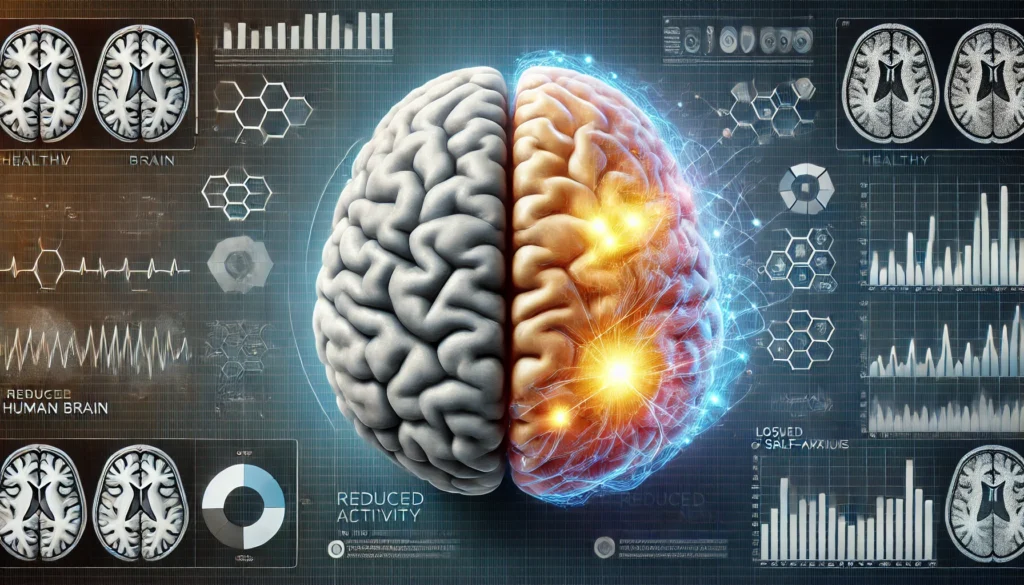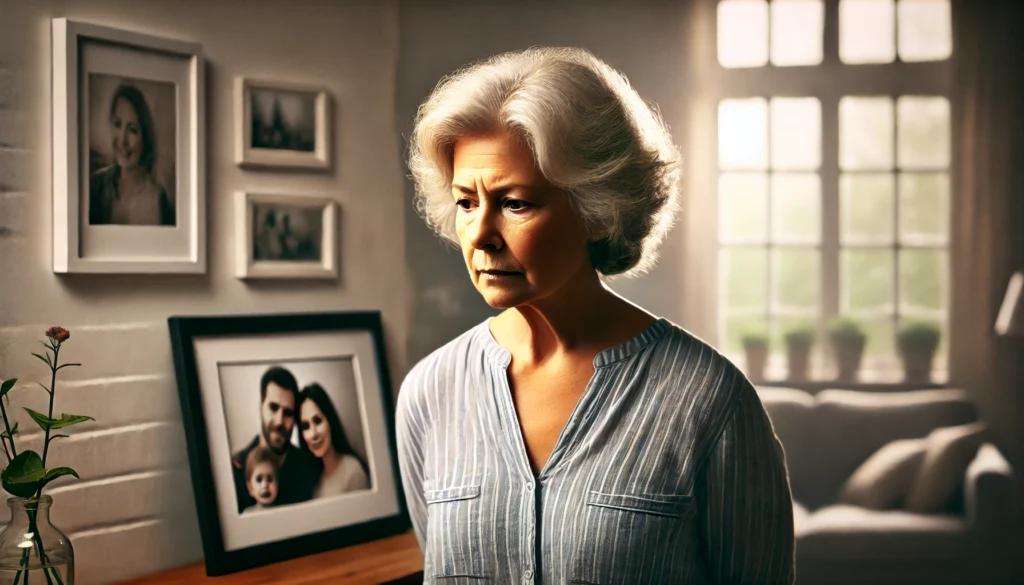Introduction
The question of self-awareness in dementia is one of the most emotionally charged and scientifically complex aspects of neurodegenerative disease. Families and caregivers often wonder: Do dementia patients know they are confused? This inquiry touches not only on neurological changes but also on the psychology of identity, memory, and insight. When a loved one begins forgetting names, repeating stories, or acting in uncharacteristic ways, it becomes essential to understand whether they are aware of these changes or navigating their reality in an altered cognitive state. Knowing the answer to whether or not someone recognizes their confusion can guide care strategies, foster empathy, and influence medical decisions.
You may also like: How to Stop Cognitive Decline: Science-Backed Steps for Prevention and Brain Longevity
Many caregivers also ask: Do people with dementia know they have it? or Does a person with dementia know they are confused? The answers aren’t uniform. While some individuals experience a painful clarity in the early stages of dementia, many lose insight as the disease progresses. This insight, or lack thereof, is known medically as “anosognosia” — a condition where a person is unaware of their own illness. Understanding how anosognosia intersects with various types of dementia, such as Alzheimer’s disease, vascular dementia, or frontotemporal dementia, is critical for shaping compassionate care and realistic expectations.

The Science of Self-Awareness in Dementia
Dementia affects different regions of the brain, and the specific type of dementia determines how and when a person might lose awareness of their condition. For example, Alzheimer’s disease commonly begins in the hippocampus, disrupting memory before moving into areas associated with executive function and self-monitoring. When the frontal lobes are affected, insight into behavior and cognitive limitations often fades.
Neuroscience has demonstrated that insight is not an all-or-nothing phenomenon. A person may recognize they’re having trouble with memory but remain unaware of other issues such as impaired judgment or disorganized speech. For instance, while a caregiver might notice repeated questions or irrational decisions, the person with dementia may feel confident in their choices. So when people ask does a person with dementia know they are confused, the answer depends heavily on what stage of the disease they are in and which brain functions are compromised.
Clinical studies using neuroimaging show that reduced activity in the prefrontal cortex correlates with lower levels of insight. In practical terms, this means that as dementia progresses and the brain’s self-monitoring systems decline, awareness of confusion and mistakes becomes less likely. This also affects responses to correction or feedback. Patients may become defensive, dismissive, or perplexed when their behavior is questioned, not out of stubbornness but because their internal sense of coherence is no longer reliable.

Emotional Insight: Knowing Something is Wrong
In the early stages of Alzheimer’s or other dementias, many patients are acutely aware that something is changing. They may express concern about forgetting words, losing track of appointments, or feeling mentally foggy. This emotional insight can cause depression, anxiety, or frustration. For these individuals, the question do people with dementia know they have dementia is answered with a resounding yes, albeit often with fear or denial accompanying that knowledge.
Interestingly, emotional insight can persist even as cognitive insight fades. Someone might no longer understand they have a diagnosis of dementia but still feel a vague sense that something isn’t right. They might say things like, “I just don’t feel like myself lately,” or, “Why can’t I remember that?” These moments suggest that some fragment of awareness survives, even when logical comprehension is impaired.
This dissonance can be especially painful for families. On one hand, a person might vehemently deny having any memory problems when confronted. On the other, they might cry out in the night, terrified and disoriented. Do dementia patients realize they have dementia? The answer may change from hour to hour or situation to situation, creating a dynamic and emotionally complex caregiving environment.
Does a Person with Dementia Know They Are Confused?
As dementia advances, it often becomes harder for patients to recognize their confusion. When people ask, does a person with dementia know they are confused, it is often rooted in observing behavioral changes like repetitive questioning, aimless wandering, or sudden changes in mood. In mid-to-late stages of dementia, anosognosia becomes more common, and patients may seem utterly unaware that their cognitive abilities are declining.
The lack of recognition isn’t due to willful denial but rather due to genuine changes in brain function. Without the ability to self-reflect and process errors in real time, a person may believe their actions and thoughts are perfectly coherent. In some cases, the brain compensates with confabulation—filling in memory gaps with fabricated or distorted explanations that feel true to the individual. This can give the illusion of awareness when in fact, it masks deeper confusion.
On the other end of the spectrum, some patients show momentary lucidity. They may suddenly recognize they forgot something important or become tearful upon realizing they made a mistake. These flashes of awareness can be emotionally devastating but also provide a fleeting opportunity for connection and reassurance.
Do Dementia Patients Know What They Are Saying?
Another commonly asked question is: Do dementia patients know what they are saying? Language and communication are profoundly affected in many types of dementia. In Alzheimer’s, language impairment tends to follow memory loss, while in conditions like primary progressive aphasia, it can be an early symptom.
Patients may use incorrect words, repeat phrases, or speak in vague terms. In many cases, they are unaware that their speech is unusual. They may believe they are expressing themselves clearly even when their words no longer make logical sense. This can be frustrating for listeners and embarrassing for the speaker if they become aware of the disconnect.
There are moments when people with dementia regain some clarity and express thoughts or emotions accurately. These moments often occur in familiar settings, when stress is low and the individual feels safe. Such observations support the idea that cognitive capacity in dementia is not a constant but can fluctuate throughout the day.

Does Someone with Dementia Know They Have It?
The question does someone with dementia know they have it highlights the spectrum of awareness. In early stages, many individuals are given a diagnosis and understand what it means. Some actively participate in treatment, make lifestyle changes, or even join support groups. However, as the disease progresses, the ability to retain and understand this diagnosis fades.
Families might notice that a person who once acknowledged their dementia no longer does. This doesn’t necessarily mean denial—it may reflect an inability to process or remember the diagnosis. It is not uncommon for a person with moderate dementia to ask, “Why do I keep forgetting things?” even after repeated explanations.
Healthcare providers emphasize the importance of meeting the person where they are cognitively. If they no longer understand what dementia is, it may be more effective to offer reassurance rather than correction. For example, instead of saying, “You have dementia,” one might respond, “It’s okay—sometimes our brains get tired, and we forget things. Let’s work on it together.”
Is Excessive Talking a Sign of Dementia?
Excessive talking is not traditionally considered a core symptom of dementia, but it can appear in specific forms or stages of the disease. For example, in frontotemporal dementia (FTD), disinhibition and compulsive speech can occur due to frontal lobe degeneration. In these cases, is excessive talking a sign of dementia becomes a more relevant question.
Some individuals with dementia develop a tendency to fill silence with speech, often repeating the same stories or statements. This behavior can be linked to anxiety, memory loss, or impaired self-regulation. While excessive talking alone is not diagnostic, when combined with other cognitive changes, it may warrant further assessment.
It is important to differentiate between a chatty personality and pathological verbosity. Sudden or escalating verbosity, especially if it seems out of character or disconnected from context, may be a clue to underlying neurological changes. Again, understanding the type of dementia involved can help determine whether excessive talking is a meaningful symptom.

Anosognosia: When Insight Disappears
Anosognosia is the clinical term for a lack of awareness of one’s illness. It affects up to 81% of people with Alzheimer’s disease and is particularly common in the middle and later stages. When families ask, do dementia patients know they are confused, anosognosia offers a biological explanation for why they often don’t.
This lack of insight is not exclusive to dementia. It is also seen in stroke survivors, people with schizophrenia, and individuals with brain injuries. In dementia, it often manifests as denial, resistance to help, or accusations of interference. Caregivers may hear, “There’s nothing wrong with me,” even as the person forgets appointments or cannot recognize loved ones.
Dealing with anosognosia requires patience, reframing, and strategic communication. Rather than confronting the person with their deficits, caregivers are encouraged to validate feelings and redirect attention. For example, if someone refuses to stop driving, a doctor’s recommendation may be more persuasive than a family member’s plea.
The Role of Insight in Care Planning
Understanding how much insight a person has is crucial for care planning. If someone is aware of their condition, they can be involved in making choices about their future, including medical treatments, living arrangements, and legal decisions. When insight is intact, patients can contribute to conversations about advance directives and end-of-life care.
When insight is impaired, caregivers and healthcare providers must make decisions on the person’s behalf. This includes ensuring safety, managing medications, and providing structure to daily life. Knowing whether someone recognizes their confusion can guide how and when these decisions are introduced.
For instance, if a person does not realize they are confused, they may resist help with finances, cooking, or transportation. Anticipating this resistance and developing a supportive framework can prevent conflict. Using neutral language, simplifying choices, and preserving dignity are all strategies that help maintain trust.
The Complexity of Fluctuating Awareness
One of the most challenging aspects of dementia is the fluctuation in cognitive clarity. On some days, a person may seem lucid and engaged, while on others, they appear completely unaware. This variability can create false hope or confusion for families trying to gauge the progression of the disease.
Fluctuations can be influenced by sleep, medications, hydration, infections, or emotional stress. A good night’s sleep may bring clarity, while an unfamiliar environment can exacerbate confusion. Recognizing these patterns helps caregivers manage expectations and plan daily routines more effectively.
This also underscores why the answer to do dementia patients know they are confused isn’t always consistent. It may be yes in the morning and no in the evening. It may depend on who is present, how questions are asked, and what the person’s mood is. Flexibility, compassion, and attentive observation are key.
Frequently Asked Questions
1. Do dementia patients know they are confused all the time?
Not necessarily. In the early stages, many individuals with dementia are aware of their confusion and may express concern. However, as the disease progresses, awareness often diminishes. This change is due to neurological damage that affects the brain’s self-monitoring capabilities. Some may have brief moments of clarity, but consistent awareness becomes less likely over time.
2. Do people with dementia know they have it?
In the beginning stages, many people are aware of their diagnosis and can discuss it. They may even participate in support groups or treatment planning. But as cognitive decline advances, memory of the diagnosis and understanding of the condition often fades. This loss of insight is common and can make caregiving more complex.
3. Does a person with dementia know they are confused when they ask repeated questions?
Sometimes. In early stages, a person may be aware that they are repeating themselves and feel embarrassed or frustrated. In later stages, they are often unaware and genuinely believe they are asking something for the first time. Their confusion feels real to them, even if it’s based on faulty memory.
4. Do dementia patients know what they are saying when they speak incoherently?
Often, no. They may believe they are communicating clearly, even if their words are nonsensical or repetitive. This happens because language centers in the brain are affected by dementia, disrupting both word retrieval and sentence formation. They may not be aware that their speech lacks coherence.
5. Is excessive talking a sign of dementia or just personality?
Excessive talking alone is not enough to diagnose dementia. However, if it emerges suddenly or includes repetitive, irrelevant, or disorganized speech, it could signal a cognitive issue. Conditions like frontotemporal dementia can involve compulsive speech patterns. Evaluation by a healthcare professional is recommended if concerns arise.
6. Does someone with dementia realize they have dementia in later stages?
Usually not. In moderate to severe stages, anosognosia becomes more common. The person may no longer remember or comprehend their diagnosis. They may deny problems entirely or invent explanations for their behavior. This is not intentional but reflects neurological decline.
7. Can a person with dementia become aware again after losing insight?
Occasionally, yes. Some individuals experience brief moments of clarity or self-awareness, especially in familiar or emotionally meaningful settings. These moments are unpredictable and may not last long, but they can provide emotional connection and comfort for families.
8. Why do some dementia patients deny they have memory problems?
Denial may result from anosognosia, fear, embarrassment, or confusion. In some cases, the brain damage prevents them from recognizing deficits. In others, it may be a psychological defense mechanism. Compassionate communication is essential when addressing this denial.
9. How can caregivers cope with a loved one’s lack of awareness?
Caregivers can focus on validating feelings rather than confronting inaccuracies. Using redirection, creating structured routines, and working with medical professionals can reduce conflict. Support groups and therapy may help caregivers manage stress and develop effective strategies.
10. What is the best way to talk to someone who doesn’t know they have dementia?
Avoid arguing or insisting on the diagnosis. Instead, offer reassurance, keep explanations simple, and emphasize shared goals like comfort and safety. Phrases like “Let’s try this together” or “I’m here to help you” can maintain dignity while guiding behavior.

Conclusion
The question of whether dementia patients know they are confused reveals a deeply human concern: the desire to understand the lived experience of those navigating cognitive decline. As we explore the answers to do people with dementia know they have it or do dementia patients realize they have dementia, we uncover a landscape shaped by neuroscience, psychology, emotion, and individual variation. Insight, when present, allows for planning and connection. When absent, it challenges caregivers to adapt and advocate.
Ultimately, the goal is not to force awareness but to respond to the person with empathy, informed by science and grounded in love. Recognizing that does a person with dementia know they are confused may have different answers at different times helps caregivers remain flexible and compassionate. With patience, understanding, and continued research, we can improve the quality of life for those affected by dementia and offer them the dignity they deserve.
Was this article helpful? Don’t let it stop with you. Share it right now with someone who needs to see it—whether it’s a friend, a colleague, or your whole network. And if staying ahead on this topic matters to you, subscribe to this publication for the most up-to-date information. You’ll get the latest insights delivered straight to you—no searching, no missing out.
Further Reading:
Understanding Functional Cognitive Disorder: Symptoms, Diagnosis, and How It Differs from Dementia
Early Diagnosis of Dementia and Alzheimer’s: Why Timely Detection Matters for Better Brain Health



